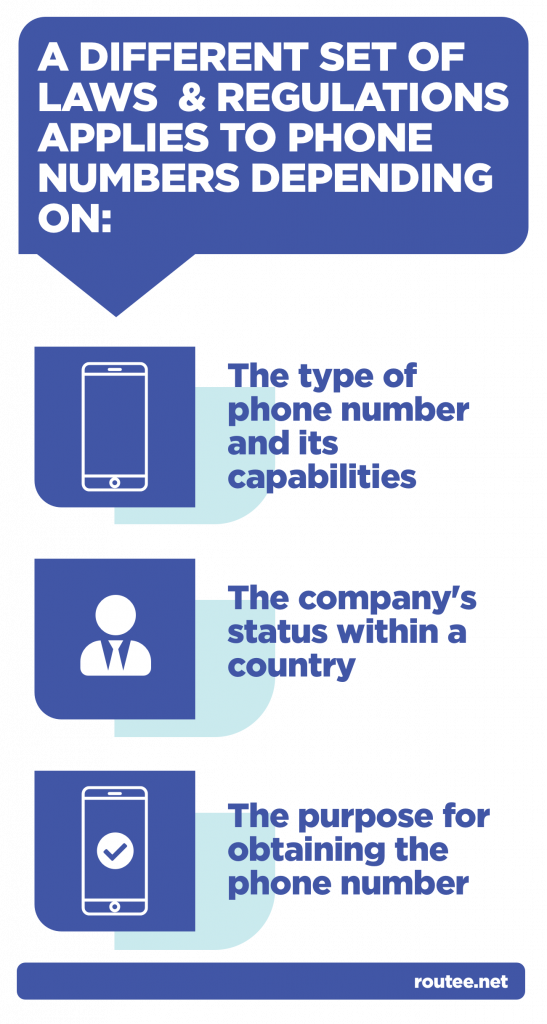
Toll-Free Numbers: A Useful Guide to Restrictions for Developers
Why is regulatory compliance important?
Globally, regulatory compliance requirements for telecommunications services have increased, since phone numbers are a national resource owned by each country and local regulators want to ensure they are not used inappropriately, therefore, they generally want to know where the numbers are being used and for what purposes. In addition to regulations and laws covering phone numbers, each country approaches regulation differently with requirements depending on multiple factors.
What are the requirements types?
A different set of laws and regulations applies depending on:
- The type of phone number and its capabilities
- The company’s status within a country
- The purpose for obtaining the phone number
In most cases, identity and address documentation is sufficient to satisfy the requirements. Normally, these documents are provided to the end-user of the phone number, so if you resell the number to a customer, those documents must be provided on their behalf.
The toll-free number provider will then provide the information necessary to each country’s regulators on your behalf, after reviewing any documentation submitted by you. You need to comply with the requirements, or the phone number will be reclaimed.

What regulatory approaches are used?
In many countries, different types of numbers are available for different purposes, such as:
- Local
- National
- Mobile
- Toll-Free
Toll-free numbers are phone numbers provided free of charge for the caller and are typically used by businesses to cover their customers' calling costs. Individuals and businesses often have different requirements, and requirements can also change depending on a country's domestic or foreign citizens.
Most countries require you to provide proof of address as well as evidence of identity, typically in the form of a government-issued photo ID. Make note that documentary proof should be current, not expired, or terminated, and utility bills and invoices need to be less than three months old. In some countries, regulators only require the address of the end-user, with no documentary proof required. To obtain and use toll-free phone numbers legally, you must create an identity for each type of number, based on country-specific regulations.
Limitations and restrictions for toll-free numbers
All countries have phone number regulations and laws in place, but they have diverse approaches to the regulations. Generally, requirements vary depending on whether you are a citizen, a foreigner, or a business. We have put together a very analytical listing of all limitations and restrictions for all types of phone numbers for all countries.
Visit our routee.net/pricing page, select the country in which you already have a toll-free number or you wish to buy one for, to see detailed information. Routee also partners with countries and regulators to ensure the protection of individuals from annoying and harmful communications.
Most of these requirements stem from laws and rules that existed around the world previously. In these countries, every communications company – not just Routee – must abide by these regulations. Any platforms which have not yet established compliance procedures will need to do so soon otherwise they risk losing their customers’ numbers.
Final Thoughts
Our number one priority at Routee is customer trust, and we have built processes and self-serve tools to ensure the phone numbers you provision is fully compliant with local country regulations. If you are in search of a reliable platform to purchase and manage your toll-free numbers then sign up to our platform for free, check out our virtual number service manager and discover the limitless capabilities of our virtual numbers solutions.
